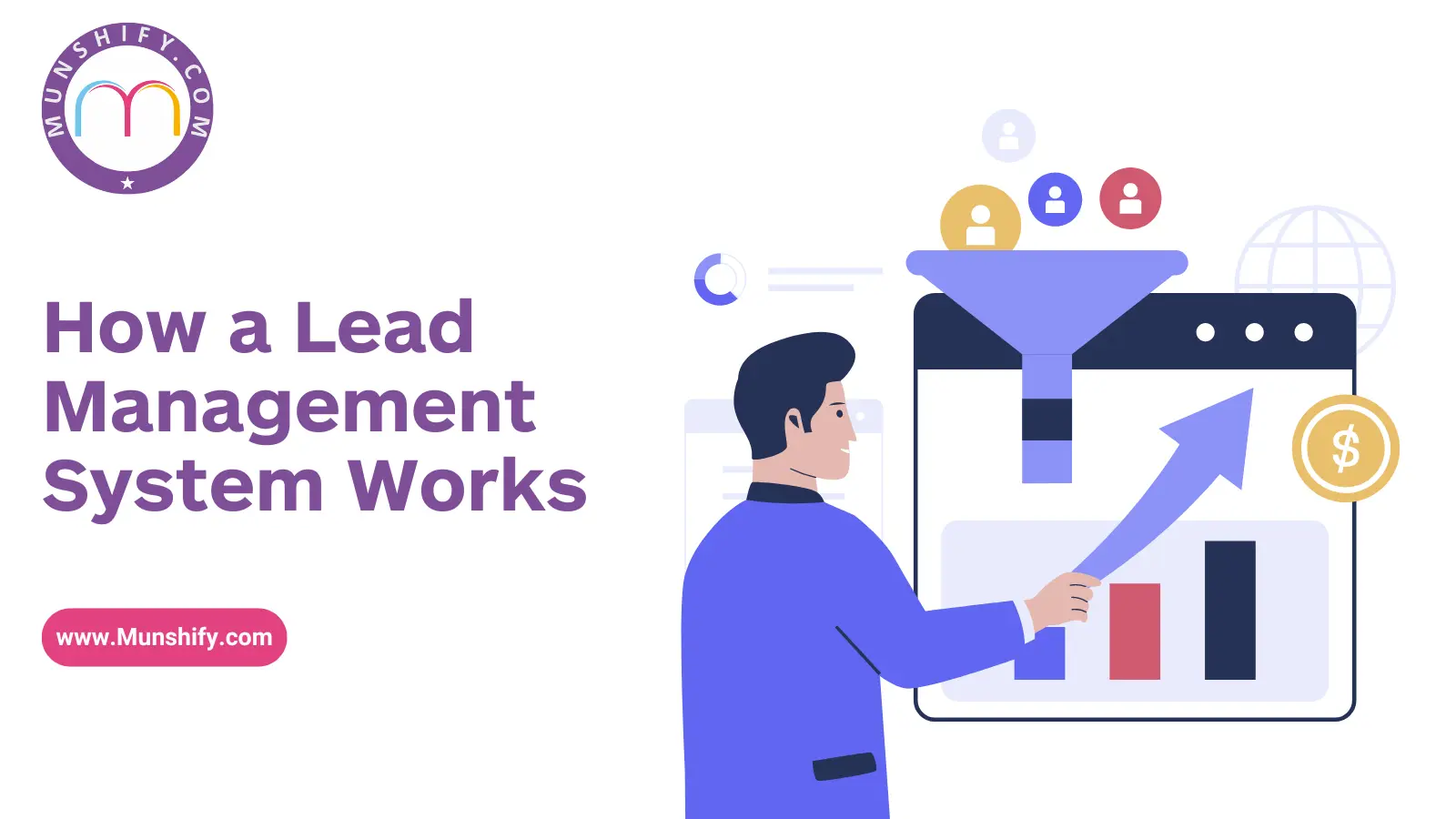A lead management system is a software solution designed to automate and streamline the process of managing leads. By centralizing lead data and tracking interactions, this system helps businesses nurture prospects throughout their journey from initial contact to final conversion. Whether integrated into a broader customer relationship management (CRM) system or used as a standalone tool, an LMS is essential for maximizing sales efficiency and effectiveness.
Core Components of a Lead Management System
To understand how a lead management system works, it is important to explore its core components. Each of these elements plays a vital role in ensuring the effective handling of leads:
1. Lead Capture
Lead capture involves gathering information from potential customers through various channels, such as web forms, social media, or email campaigns. This component ensures that all incoming leads are collected and stored in a central database for further processing.
2. Lead Tracking
Lead tracking monitors the interactions and activities of leads over time. By recording touchpoints, such as email opens, website visits, and engagement with marketing materials, businesses can gain valuable insights into a lead’s interests and behaviors.
3. Lead Scoring
Lead scoring assigns numerical values to leads based on their characteristics and behaviors. This scoring system helps prioritize leads by identifying which ones are most likely to convert. Factors such as engagement level, demographic information, and buying signals are considered in the scoring process.
4. Lead Nurturing
Lead nurturing involves building relationships with leads through targeted communication and personalized follow-ups. This component ensures that leads receive relevant content and offers at appropriate stages of their buyer journey, increasing the likelihood of conversion.
5. Lead Conversion
Lead conversion is the final step where a lead transitions from a prospect to a customer. A lead management system facilitates this process by providing tools for managing sales activities, tracking progress, and closing deals efficiently.
How Lead Management Systems Work
A lead management system works by integrating various processes and technologies to handle leads effectively. Here’s a step-by-step overview of how these systems operate:
1. Lead Collection and Storage
Leads are collected through multiple channels and automatically stored in the LMS. This centralized database allows for easy access and management of lead information.
2. Lead Qualification and Scoring
Once captured, leads are assessed and scored based on predefined criteria. This qualification process helps in identifying high-potential leads and prioritizing them for follow-up.
3. Segmentation and Personalization
Leads are segmented into different categories based on their attributes and behaviors. This segmentation enables businesses to tailor their communication and marketing efforts, ensuring that leads receive relevant and personalized content.
4. Automated Communication
Automated workflows are set up to engage leads through email campaigns, follow-up reminders, and other touchpoints. This automation ensures timely and consistent communication, reducing manual effort and improving efficiency.
5. Monitoring and Reporting
The LMS provides tools for monitoring lead interactions and generating reports. This data helps in evaluating the effectiveness of lead management strategies and making informed decisions to enhance performance.
Benefits of Implementing a Lead Management System
Implementing a lead management system offers several benefits to businesses, including:
1. Improved Efficiency: Automation of lead capture, tracking, and communication reduces manual effort and streamlines processes.
2. Enhanced Lead Nurturing: Personalized and timely communication increases the likelihood of converting leads into customers.
3. Better Lead Insights: Advanced reporting and analytics provide valuable insights into lead behavior and campaign performance.
4. Increased Sales Productivity: By prioritizing high-quality leads, sales teams can focus their efforts on the most promising opportunities.
5. Centralized Data Management: A unified database ensures that lead information is easily accessible and up-to-date.
Best Practices for Using a Lead Management System
To maximize the effectiveness of your lead management system, consider the following best practices:
1. Define Clear Objectives: Set specific goals for your lead management process and align your LMS with these objectives.
2. Regularly Update Lead Information: Ensure that lead data is accurate and up-to-date to facilitate effective communication and follow-ups.
3. Use Lead Scoring Wisely: Regularly review and adjust lead scoring criteria to reflect changes in your business strategy and market conditions.
4. Monitor Performance: Continuously track and analyze lead management metrics to identify areas for improvement and optimize your strategies.
5. Integrate with CRM: If using a standalone LMS, consider integrating it with your CRM system to streamline data management and enhance overall functionality.
FAQs
1. What is a custom lead management system?
A custom lead management software is tailored to meet the specific needs and requirements of a business. Unlike off-the-shelf solutions, it is designed and developed to address unique lead management challenges and integrate seamlessly with existing processes.
2. How can I get a lead management system demo?
Most lead management system providers offer demos to showcase their software’s features and capabilities. Contact the vendor directly or visit their website to request a demo and explore how their solution can benefit your business.
3. What is lead management system software?
Lead management software is a tool designed to automate and streamline the process of managing leads. It includes features for capturing, tracking, scoring, and nurturing leads to improve sales efficiency and conversion rates.
4. What is a CRM lead management system?
A CRM lead management system integrates lead management functionalities with customer relationship management (CRM) software. It combines lead handling with broader CRM features, such as contact management, sales tracking, and customer support.
5. What is the best CRM for lead management?
The best CRM for lead management depends on your specific needs and preferences. Look for a CRM that offers robust lead management features, ease of use, and integration capabilities to suit your business requirements.
By understanding how a lead management system works and implementing best practices, businesses can optimize their lead handling processes and drive greater success in converting prospects into loyal customers. Whether you’re a small business looking to streamline your sales efforts or a large organization aiming to enhance your customer relationships, investing in a robust lead management system is a smart move.
Take control of your leads with Munshify CRM—make managing and growing your business easier than ever!



